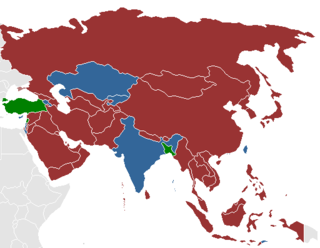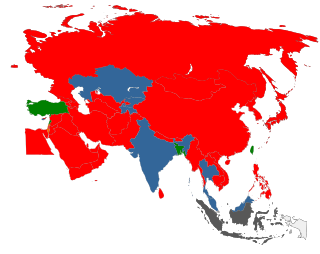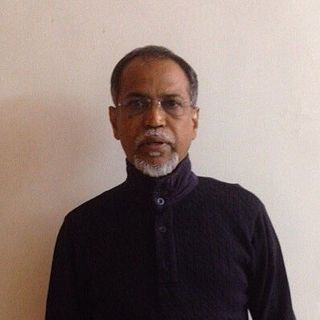
Sex tourism is the practice of traveling to foreign countries, often on a different continent, with the intention of engaging in sexual activity or relationships, in exchange providing money or lifestyle support. This practice predominantly operates in countries where sex work is legal. The World Tourism Organization of the United Nations has acknowledged that this industry is organized both within and outside the structured laws and networks created by them.
Child prostitution is prostitution involving a child, and it is a form of commercial sexual exploitation of children. The term normally refers to prostitution of a minor, or person under the legal age of consent. In most jurisdictions, child prostitution is illegal as part of general prohibition on prostitution.

Commercial Sexual Exploitation of Children (CSEC) defines the "umbrella" of crimes and activities that involve inflicting sexual abuse on to a child as a financial or personal opportunity. Commercial Sexual Exploitation consists of forcing a child into prostitution, sex trafficking, early marriage, child sex tourism and any other venture of exploiting children into sexual activities. According to the Office of Juvenile Justice and Delinquency Prevention, the lack of reporting the crime and "the difficulties associated with identifying and measuring victims and perpetrators" has made it almost impossible to create a national estimate of the prevalence of Commercial Sexual Exploitation of Children in the United States. There is an estimated one million children that are exploited for commercial sex globally; of the one million children that are exploited, the majority are girls.

Sex trafficking is human trafficking for the purpose of sexual exploitation. Perpetrators of the crime are called sex traffickers or pimps—people who manipulate victims to engage in various forms of commercial sex with paying customers. Sex traffickers use force, fraud, and coercion as they recruit, transport, and provide their victims as prostitutes. Sometimes victims are brought into a situation of dependency on their trafficker(s), financially or emotionally. Every aspect of sex trafficking is considered a crime, from acquisition to transportation and exploitation of victims. This includes any sexual exploitation of adults or minors, including child sex tourism (CST) and domestic minor sex trafficking (DMST). It has been called a form of modern slavery because of the way victims are forced into sexual acts non-consensually, in a form of sexual slavery.

Prostitution is legal in India, but a number of related activities including soliciting, kerb crawling, owning or managing a brothel, prostitution in a hotel, child prostitution, pimping and pandering are illegal. There are, however, many brothels illegally operating in Indian cities including Mumbai, Delhi, Kolkata, Pune, and Nagpur, among others. UNAIDS estimate there were 657,829 prostitutes in the country as of 2016. Other unofficial estimates have calculated India has roughly 3 million prostitutes. India is widely regarded as having one of the world's largest commercial sex industry. It has emerged as a global hub of sex tourism, attracting sex tourists from wealthy countries. The sex industry in India is a multi-billion dollar one, and one of the fastest growing.
Forced prostitution, also known as involuntary prostitution or compulsory prostitution, is prostitution or sexual slavery that takes place as a result of coercion by a third party. The terms "forced prostitution" or "enforced prostitution" appear in international and humanitarian conventions, such as the Rome Statute of the International Criminal Court, but have been inconsistently applied. "Forced prostitution" refers to conditions of control over a person who is coerced by another to engage in sexual activity.

Prajwala is a non-governmental organization based in Hyderabad, India, devoted exclusively to eradicating prostitution and sex trafficking. Founded in 1996 by Ms. Sunitha Krishnan and Brother Jose Vetticatil, the organization actively works in the areas of prevention, rescue, rehabilitation, re-integration, and advocacy to combat trafficking in every dimension and restore dignity to victims of commercial sexual exploitation.
Rachel Elizabeth Lloyd is a British anti-trafficking advocate, author and the founder of Girls Educational and Mentoring Services. She is known for her work on the issue of commercial sexual exploitation and domestic trafficking and has been a leader in helping shift the perception of trafficked girls from criminals to victims and now to survivors and leaders. She immigrated to the US in 1997 and began working to end domestic sex trafficking, primarily focusing on addressing the commercial sexual exploitation of children and young women. In 1998, she established the Girls Educational and Mentoring Services, which is based in Harlem, New York.

Prostitution is legal and regulated in Bangladesh. Prostitutes must register and state an affidavit stating that they are entering prostitution of their own free choice and that they are unable to find any other work. Bangladeshi prostitutes often suffer poor social conditions and are frequently socially degraded.

Human trafficking is the act of recruiting, transporting, transferring, harboring, or receiving individuals through force, fraud, or coercion for the purpose of exploitation. This exploitation may include forced labor, sexual slavery, or other forms of commercial sexual exploitation. It is considered a serious violation of human rights and a form of modern slavery. Efforts to combat human trafficking involve international laws, national policies, and non-governmental organizations.
In 2010, Human trafficking in India, although illegal under Indian law, remained a significant problem. People were frequently illegally trafficked through India for the purposes of commercial sexual exploitation and forced/bonded labour. Although no reliable study of forced and bonded labour was completed, NGOs estimated this problem affected 20 to 65 million Indians. Men, women and children were trafficked in India for diverse reasons. Women and girls were trafficked within the country for the purposes of commercial sexual exploitation and forced marriage, especially in those areas where the sex ratio is highly skewed in favour of men. Men and boys were trafficked for the purposes of labour, and may be sexually exploited by traffickers to serve as gigolos, massage experts, escorts, etc. A significant portion of children are subjected to forced labour as factory workers, domestic servants, beggars, and agriculture workers, and have been used as armed combatants by some terrorist and insurgent groups.

In the United States, human trafficking tends to occur around international travel hubs with large immigrant populations, notably in California, Texas, and Georgia. Those trafficked include young children, teenagers, men, and women; victims can be domestic citizens or foreign nationals.

Sunitha Krishnan is an Indian social activist and chief functionary and co-founder of Prajwala, a non-governmental organization that rescues, rehabilitates and reintegrates sex-trafficked victims into society. She was awarded India's fourth highest civilian award the Padma Shri in 2016.

Prostitution laws varies widely from country to country, and between jurisdictions within a country. At one extreme, prostitution or sex work is legal in some places and regarded as a profession, while at the other extreme, it is considered a severe crime punishable by death in some other places. A variety of different legal models exist around the world, including total bans, bans that only target the customer, and laws permitting prostitution but prohibiting organized groups, an example being brothels.

India has a very high volume of child trafficking. As many as one child disappears every eight minutes, according to the National Crime Records Bureau. In some cases, children are taken from their homes to be bought and sold in the market. In other cases, children are tricked into the hands of traffickers by being presented an opportunity for a job, when in reality, upon arrival they become enslaved. In India, there are many children trafficked for various reasons such as labor, begging, and sexual exploitation. Because of the nature of this crime, it is hard to track; due to the poor enforcement of laws, it is difficult to prevent. As such, there are only vague estimates of figures regarding the issue. India is a prime area for child trafficking to occur, as many of those trafficked are from, travel through or destined to go to India. Though most of the trafficking occurs within the country, there is also a significant number of children trafficked from Nepal and Bangladesh. There are many different causes that lead to child trafficking, with the primary reasons being poverty, weak law enforcement, and a lack of good quality public education. The traffickers that take advantage of children can be from another area in India, or could even know the child personally. Children who return home after being trafficked often face shame in their communities, rather than being welcomed home.
Human trafficking in Nepal is a growing criminal industry affecting multiple other countries beyond Nepal, primarily across Asia and the Middle East. Nepal is mainly a source country for men, women and children subjected to the forced labor and sex trafficking. U.S. State Department's Office to Monitor and Combat Trafficking in Persons placed the country in "Tier 2" in 2017.

Pravin Patkar is an Indian academic and human rights activist. He co-founded Prerana, an NGO working for child protection & anti-human trafficking. In 1999, he founded Asia's first Anti-Human Trafficking Resource Centre supported by the US Government. He has served as an expert on several national and international agencies working in the anti-human trafficking sector. He has been in the teaching profession for over 40 years in both formal and non-formal education sectors. He has written books, published articles and created PSAs to prevent organized violence against women & children.

Sex trafficking in the United States is a form of human trafficking which involves reproductive slavery or commercial sexual exploitation as it occurs in the United States. Sex trafficking includes the transportation of persons by means of coercion, deception and/or force into exploitative and slavery-like conditions. It is commonly associated with organized crime.
Sex trafficking in Japan is human trafficking for the purpose of sexual exploitation and slavery that occurs in the country. Japan is a country of origin, destination, and transit for sexually trafficked persons.









